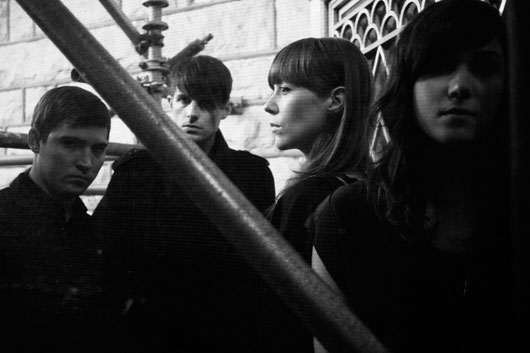Cold Cave: Dark wave and Brian Eno collide for a bedroom dancefloor epiphany.
Phillin’ It: For years, Philadelphia has been shrugged off as New York’s little brother—a place […]

Cold Cave: Dark wave and Brian Eno collide for a bedroom dancefloor epiphany.
Phillin’ It: For years, Philadelphia has been shrugged off as New York’s little brother—a place […]

Phillin’ It: For years, Philadelphia has been shrugged off as New York’s little brother—a place where displaced Brooklynites went in search of cheaper rents, bigger spaces, and a touch less ‘tude. But what’s emerged over the years is far more than simply a sixth borough. So for this year’s special City Issue, we dug around the Fishtown, Northern Liberties, Chinatown, and every other little enclave we could find to bring you the best that Brotherly Love has to offer. Check back every few days for a new feature from the east coast’s newest hotbed.
There’s a level of deep listening where “being influenced by” doesn’t ?quite come into play. It’s very near the surface of the music that Philadelphian Wes Eisold has been releasing for just over a year, with the occasional help of friends, under the moniker Cold Cave. A near-delirious jumble of pop gestures embedded in dusty-circuit synths and mids-heavy drum machines, Cold Cave’s first proper full-length, Love Comes Close (released on Eisold’s own Heartworm Press imprint), might recall EBM or dark wave at moments, but its prerogative is less about a particular sound than a whole structure of feeling. As Eisold puts it, “What I wanted to make was an ode or memorial to the music I’ve spent years dancing to alone in a bedroom.” It figures, then, that former Xiu Xiu member Caralee McElroy—a singer and musician well versed in bringing out the dancefloor potential of bedrooms—contributes to many of the tracks here.
More often than not, the soundtrack for Eisold’s bedroom dancing was Brian Eno’s “Here Come the Warm Jets,” and he singles out Eno’s debut album of the same name as a bridge between the structured world of hardcore and experimentation with audio processing and recording itself. As the vocalist of now-defunct post-hardcore units Some Girls and Give Up the Ghost, Eisold sees Cold Cave as a departure from his previous projects in that his writing and recording process are one and the same, involving more improvisation and more responsibility for the final product: “I record everything and end up using a lot of the mistakes I become fond of,” Eisold says, echoing Eno’s Oblique Strategies dictum to “honor thy mistake as a hidden intention.” While Love Comes Close is undeniably more of a pop album than the noisier singles collection Cremations (Hospital Productions, 2009), the tracks behind Eisold’s and McElroy’s singing writhe and threaten to devolve into the protean tone exploration of early electronic music.
Comparing Cold Cave to the musicians they fleetingly resemble—OMD, Front 242, Chris & Cosey—is something like taking dream symbols literally. Each of the bands mentioned had their own subcultural corona in the pre-internet era, a net of references that orbited around them and described a whole way of being in the world. If there’s a dreamy quality to Cold Cave’s music, it’s in the way it creates spaces we seem to recognize. Eisold has recalled in previous interviews how, as a child, a family friend described to him that the black-clad kids at the mall were Smiths fans. Peering into such portals is what guides Cold Cave, a project that Eisold describes as an attempt to “give back in the present to what has given so much to me in the past.” In doing so, Cold Cave manages to come up with something more vital than irony or earnestness alone could muster.

